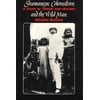Updated On November 19th, 2024
Looking for the best Latin American History Books? You aren't short of choices in 2022. The difficult bit is deciding the best Latin American History Books for you, but luckily that's where we can help. Based on testing out in the field with reviews, sells etc, we've created this ranked list of the finest Latin American History Books.
| Rank | Product Name | Score | |
|---|---|---|---|
| 1 |

|
Shamanism, Colonialism, and the Wild Man : A Study in Terror and Healing (Paperback)
Check Price
|
0%
|

Our Score
Working with the image of the Indian shaman as Wild Man, Taussig reveals not the magic of the shaman but that of the politicizing fictions creating the effect of the real. "This extraordinary book . . . will encourage ever more critical and creative explorations."--Fernando Coronil, [I]American Journal of Sociology[/I] "Taussig has brought a formidable collection of data from arcane literary, journalistic, and biographical sources to bear on . . . questions of evil, torture, and politically institutionalized hatred and terror. His intent is laudable, and much of the book is brilliant, both in its discovery of how particular people perpetrated evil and others interpreted it."--Stehen G. Bunker, Social Science Quarterly
Working with the image of the Indian shaman as Wild Man, Taussig reveals not the magic of the shaman but that of the politicizing fictions creating the effect of the real. "This extraordinary book . . . will encourage ever more critical and creative explorations."—Fernando Coronil, [I]American Journal of Sociology[/I] "Taussig has brought a formidable collection of data from arcane literary, journalistic, and biographical sources to bear on . . . questions of evil, torture, and politically institutionalized hatred and terror. His intent is laudable, and much of the book is brilliant, both in its discovery of how particular people perpetrated evil and others interpreted it."—Stehen G. Bunker, Social Science Quarterly